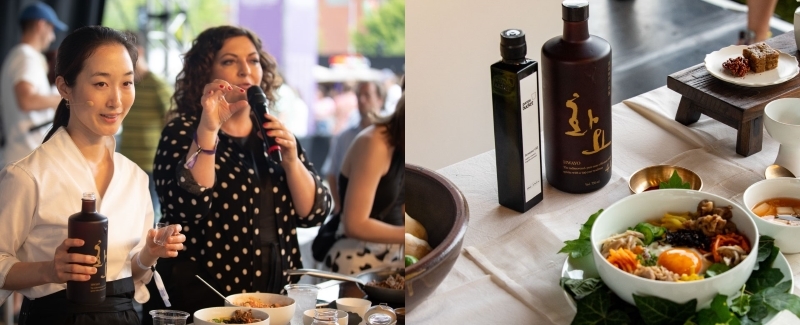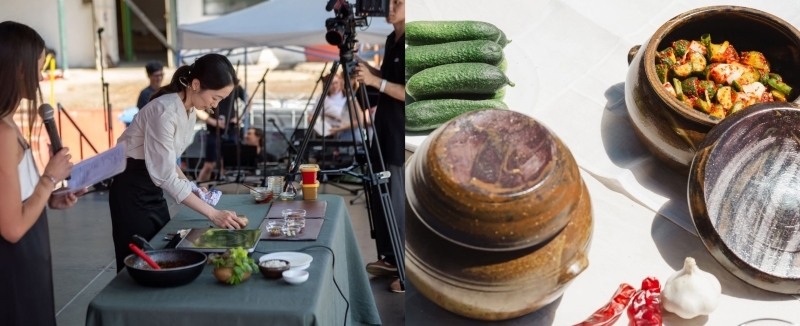- 한국어
- English
- 日本語
- 中文
- العربية
- Español
- Français
- Deutsch
- Pусский
- Tiếng Việt
- Indonesian
By Honorary Reporter Foteini Chatzoudi from Greece
Kim Tae-yeon is director of the Netherlands-based Kimchi Institute, which was founded in 2022 to spread Korean food and its culture in Europe.
Primarily focusing on fermentation, seasonal cuisine and creative gastronomy, she recently led the Korean Jang Heritage Project at the Korean Cultural Center (KCC) in Hungary, which showcased traditional fermentation techniques, especially for jang (fermented paste and sauces) through demonstrations and workshops. This was held in conjunction with the Korea On event held from June 27-28 in Budapest.

Kim Tae-yeon seeks to spread kimchi and Korean cuisine throughout Europe. (KCC in Hungary)
The following are excerpts from an email interview with Kim from June 27 to July 3.
What is the mission of the Kimchi Institute?
The Kimchi Institute began with a simple goal to share the beauty of Korean cuisine, which is not yet widely known outside of Korea, mainly focusing on the cuisine's seasonal, nature-based and philosophical aspects. Symbolically named after kimchi, a food which represents Korea's cultural identity, our goal is to build cultural bridges through local ingredients and shared traditions.
Explain the Korean Jang Heritage Project in Hungary.
Hosted by the KCC in Hungary, the project celebrated UNESCO recognition of jang such as ganjang (soy sauce), doenjang (fermented soybean paste) and gochujang (spicy red pepper paste).
This project involved making jang with the Ven. Jeong Kwan, a Buddhist nun and chef known for her expertise in Korean temple cuisine. We blended ingredients and symbolic details reflecting harmony between the two nations.

Kim Tae-yeon holds a demonstration at the 2025 Korea On event. (Antal Zsani)
How has your experiences differed in each European country?
Every country brings out a different side of Korean food. In France, people are fascinated by the philosophy behind fermentation. In the Netherlands, they love creativity, boldness and sustainability.
Hungary has a deep appreciation for preservation and spices, so the connection feels immediate. What I love is that wherever I go, people are open to learn more. They're eager to explore Korean flavors and make them part of their own kitchens.
What are your plans?
Following last year's release of the trilingual book "Seoul Budapest" written with Hungarian wine expert Agnes Herczeg, which explores how Korean food and Hungarian wine harmonize, I will continue to bridge Korean with European food cultures.
I'll also continue holding fermentation workshops across Europe and attend Korean cultural festivals. Right now, I'm especially passionate about showing each country's interpretation of Korean food like kimchi made with European wild garlic or gochujang made with Hungarian paprika powder and soybeans. I want to show that Korean cuisine can adapt and thrive anywhere.
msjeon22@korea.kr
*This article is written by a Korea.net Honorary Reporter. Our group of Honorary Reporters are from all around the world, and they share with Korea.net their love and passion for all things Korean